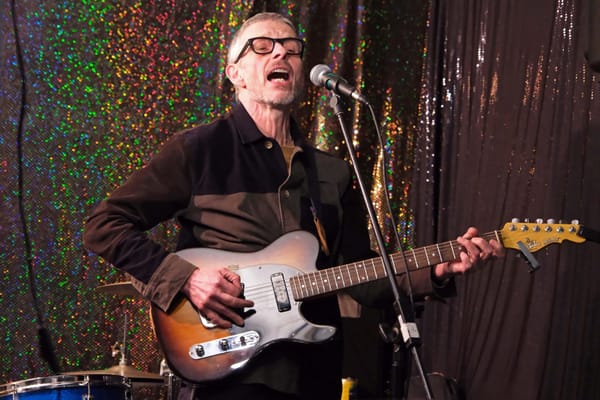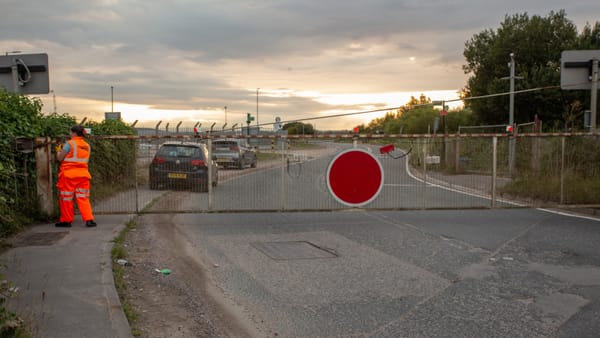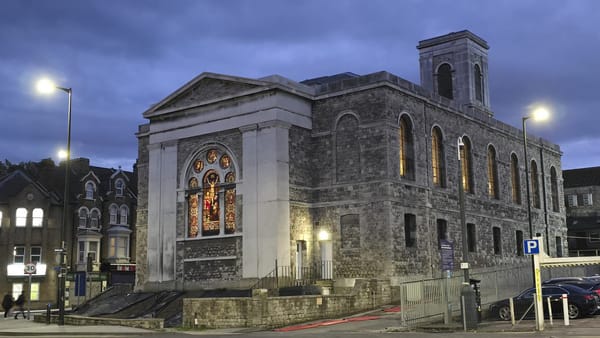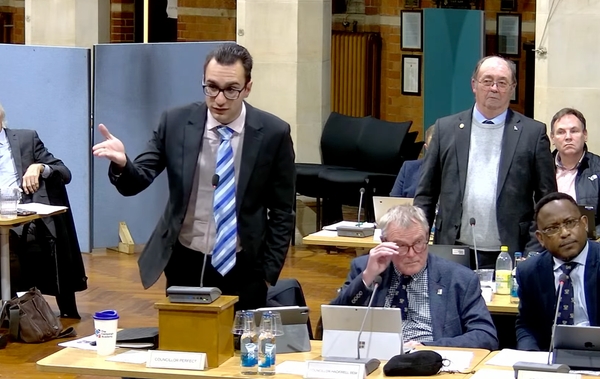"It created somebody horrible"
What Steven asked John Daynes, motivational speaker and coach at Prison2Parliament
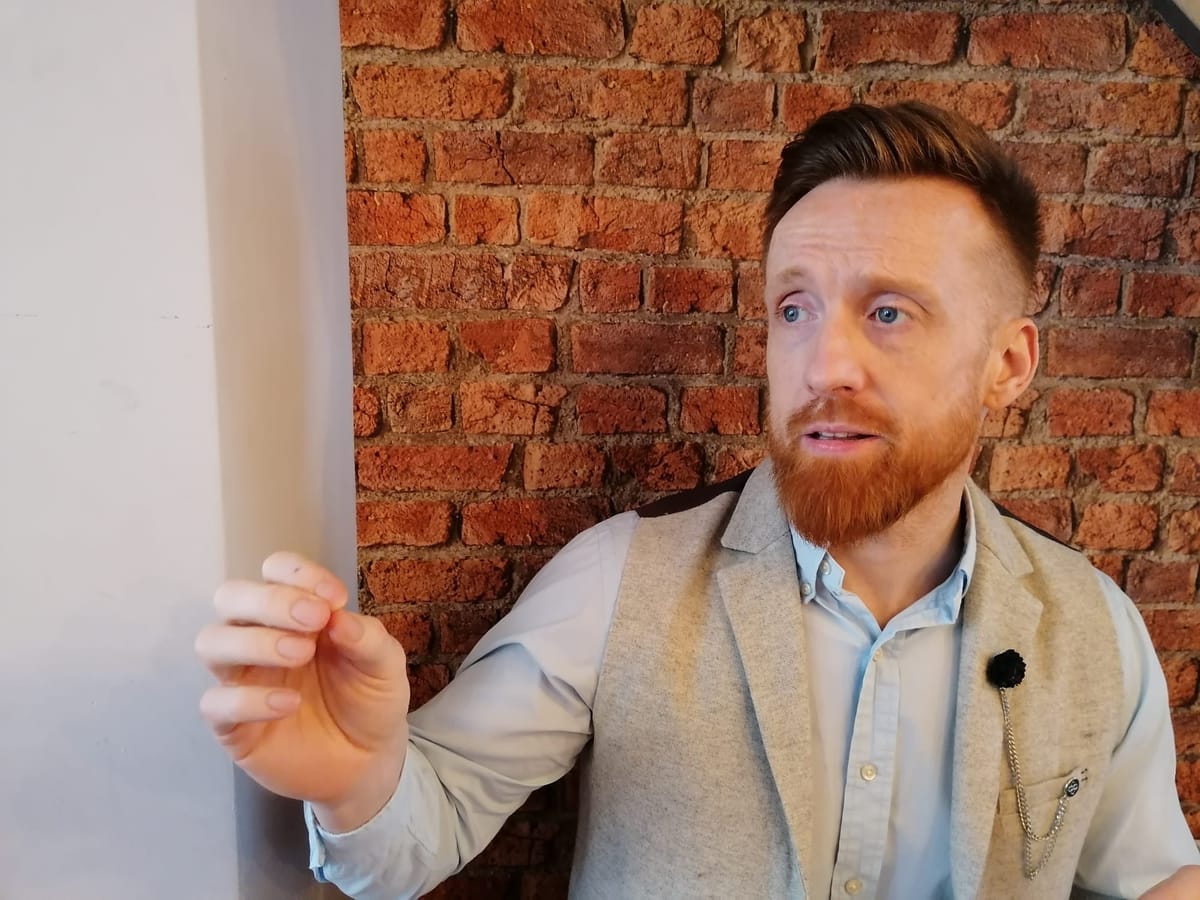
John Daynes was taken into the care at a young age following a family accident. Confused and suffering from pain and anger, he turned to drugs and was addicted to heroin by 16. Steven spoke to him about how faith helped him leave prison for the last time at 31, meet his wife, and end his addictions. Helped by Caring Hands and COOK along the way, he now has his own coaching business, Prison2Parliament.

Where were you born?
I was born in Medway. I was born in Medway Hospital, and then I got brought up pretty much everywhere because I was in foster homes all over the country. My family are from Sittingbourne. That's where I spent quite a lot of my time, but then, living in Medway and the latter days I've been in Medway for probably about seven years now.
Why did you enter the foster system?
The foster homes, I think it was when I was about six or seven. I first started to filter through foster homes. I think I've been in double figures foster homes. There was a lot of confusion when I was younger. My mum had a car accident, she went into a coma, and when she woke up out of the coma, she didn't recognise her children. At that point, there was my older brother Darren, me, and my little brother Barry. That was a big hit on the kids. A lot of rejection. Children want that love from their mum. If they don't get that, things can go really wrong from a young age because there's got to be established boundaries, love and discipline, and it's got to be authentic. I remember my dad was fighting for me, so I started to kick back.
Your parents weren't together?
They had a divorce. There was lots of complications, and I won't go into that.
I started to kick back in anger, fighting. I remember I used to get restrained a lot because I used to smash windows out in children's homes, foster homes. I used to say, ‘I don't want to be here.’ They used to move me to another one. That didn't work, same turnout, same situation. I was just a broken little boy growing up with confusion and I was lonely.
Do you have any understanding now of why they wouldn't let you live with your dad?
I don't know. Do you know what I think it was? It was me. My dad had no property at that moment. He was trying to get a house. Then I started to like the clothing grant, the money that social services used to give to you. In the end, I said, no, I don't want to go back and live with my dad.
Years went by. I was going out seeing my dad, building a relationship. My dad loved me. Nothing wrong with him, proper family man. I think a lot of it was me, honestly, a lot of it was me as a youngster, just saying all sorts of stuff. Then as I started to get older, I started to investigate with drugs, because obviously there was a void that I was carrying as a young man, and it was painful. It was a place that I didn't want to go to. I started to look for highs to keep me at a certain level. I didn't have to come to the reality of the trauma that I was carrying. I couldn't make sense of what happened when I was young. It happened all too fast. I was bewildered.
In the end, I didn't want to make sense of it. I started to look for highs, and that was violence and crime. I started to take marijuana at a young age. I was in a children's home in Strood, about 12. It actually started with gas, and then it went to marijuana, and I remember between 14 and 16 I was in a children's home, I was highly intoxicated by marijuana, and I used to even get the social workers to go out and buy it for me. I know they shouldn't have done it, but it used to keep me calm. I was so violent when I was younger. I had a bad, bad anger problem, and the slightest little adjustment from any parent, any human being, any authority I used to just kick off. I wouldn't do it. I rejected it. I rebelled against authority, desensitized from society. I was an island all by myself. I was nearly 16 when I had my first prison sentence.
What part, if any, did school play in your life at this point?
Oh yeah, good question. I remember when I was in foster homes, they used to try to send me to school. I used to go to a special school in Gillingham called Upbury Manor. I used to have one teacher in the class teaching and then I used to have another teacher sitting by my side trying to calm me down, trying to teach me as I'm going through. Because I was dyslexic, I couldn't read or write. I was in school for a little bit. I ended up having a massive fight with one of the headmasters, kept getting suspended, never turning up, always bunking off, always fighting. I was a little rebel at school.
Were there no lessons that you found a place for yourself? Sport or art or?
Nothing. The only thing I remember when I was there, which wasn't a lot, is I was always the fastest 100 metre sprint. So fast. I had a little story. A little story that one man came to the school in Gillingham, and we had a race. I ran, and I slid, and hit my knee onto the wall, and my whole knee just shattered. I had to have plaster from the top to the bottom. Anyway, not that you wanted to hear that, but I wasn't really at school. I was always getting in trouble a lot, and I never learned, I wasn't educated, and there was so much fog within my mind.
You first went to prison at 15?
That was in Feltham Young Offenders in London. That was for allowing myself to be carried in a stolen car. We stole a car. We had an hour chase. My friend Matt was driving. I was in the backseat. They caught us in the end. Police give us a kicking, actually. Back when I was growing up, the police used to give you a little dig, especially after an hour. They've tightened up on it now. There's lots of rules and policies, and they can't get away with it like they used to. I got arrested. He was driving. He got off. He didn't go to prison. I was in the back seat and I got two months. Had to do one month because I had a bigger record than him. My record was bad. Growing up, I was doing burglaries, stealing cars, stealing stereos and speakers out of cars.
You didn't necessarily get the punishment for the crime. You got the punishment for the wider narrative?
That's it, yeah. They looked at my record and went, ‘Mate, you've been busy, you've got to have some punishment here.’

